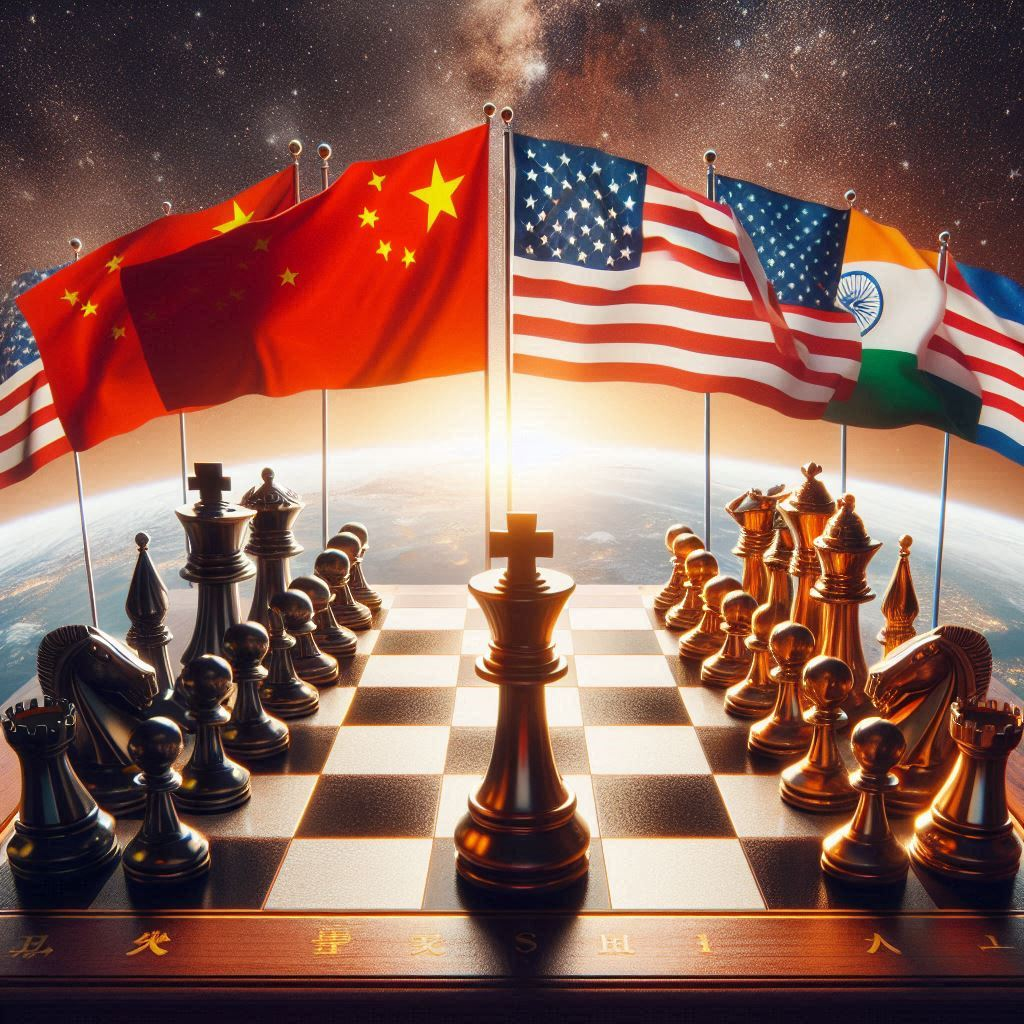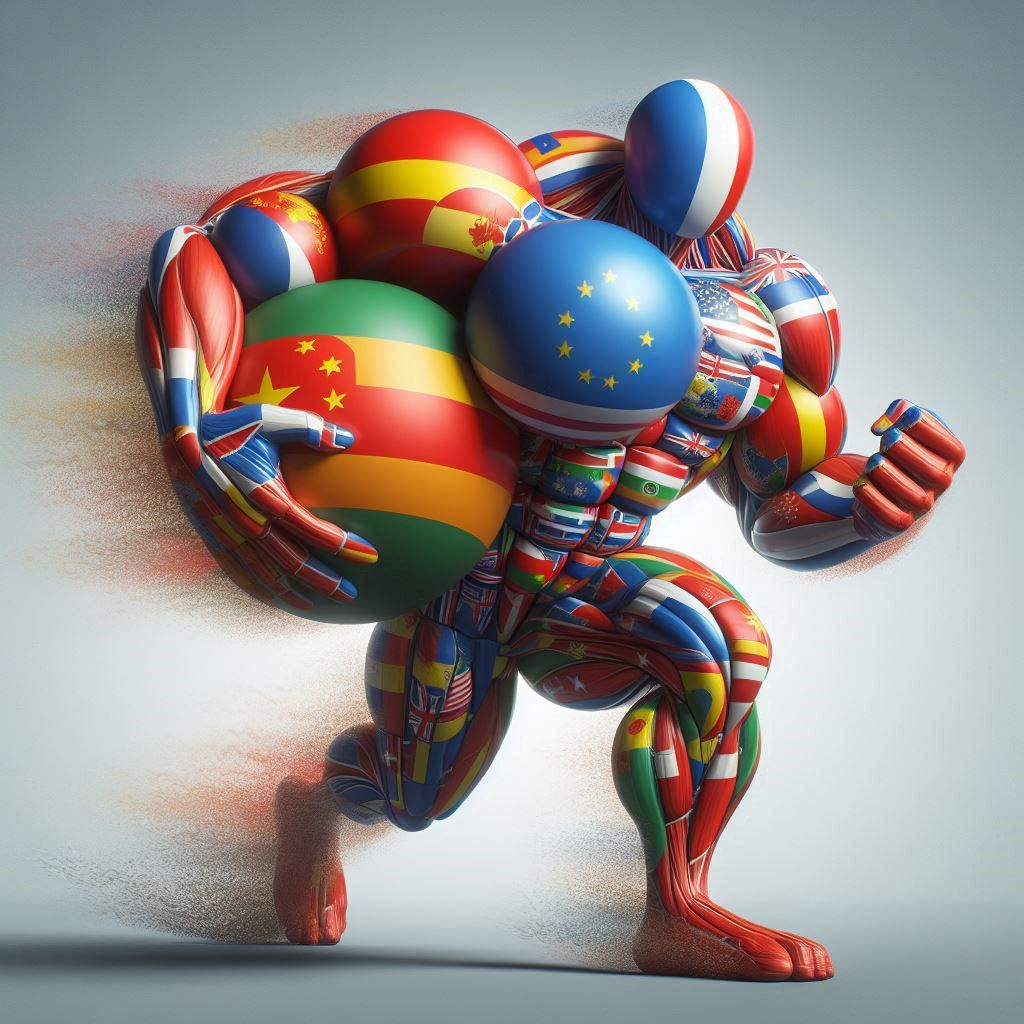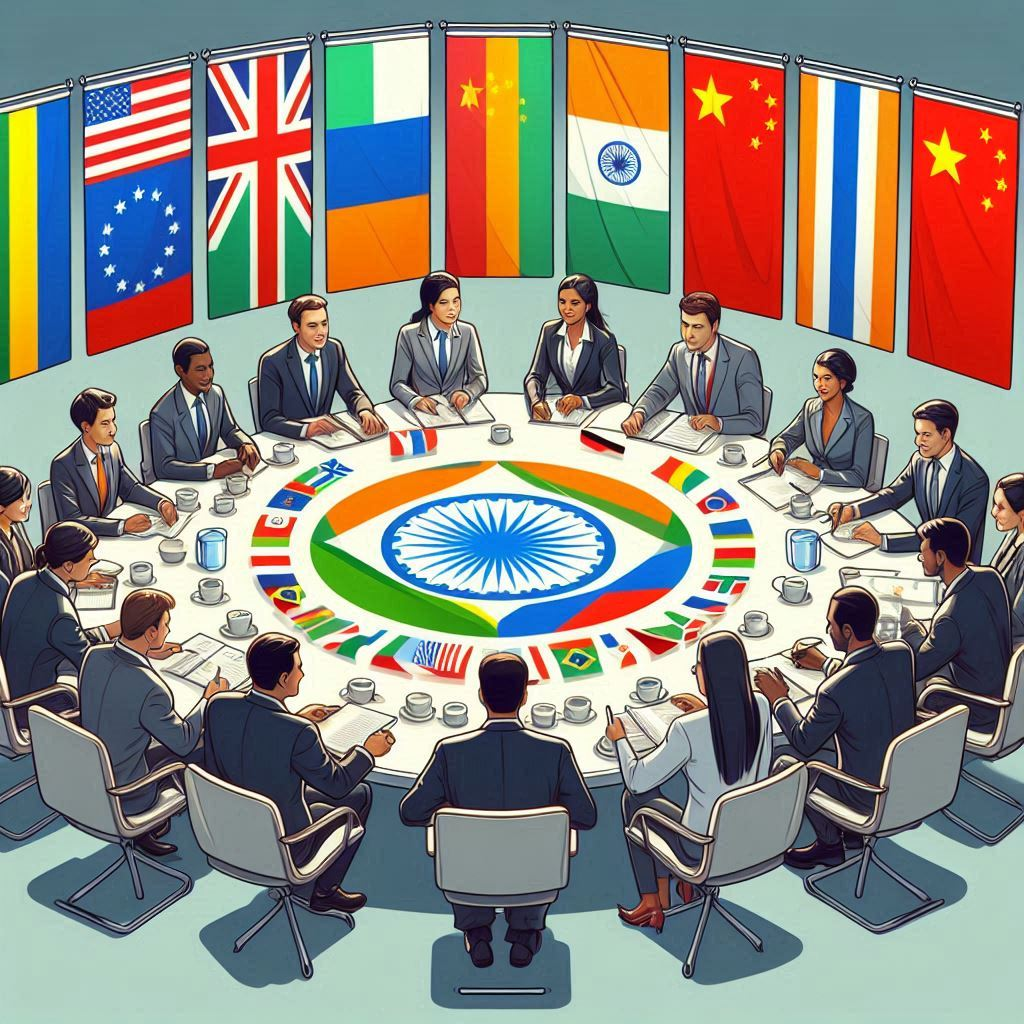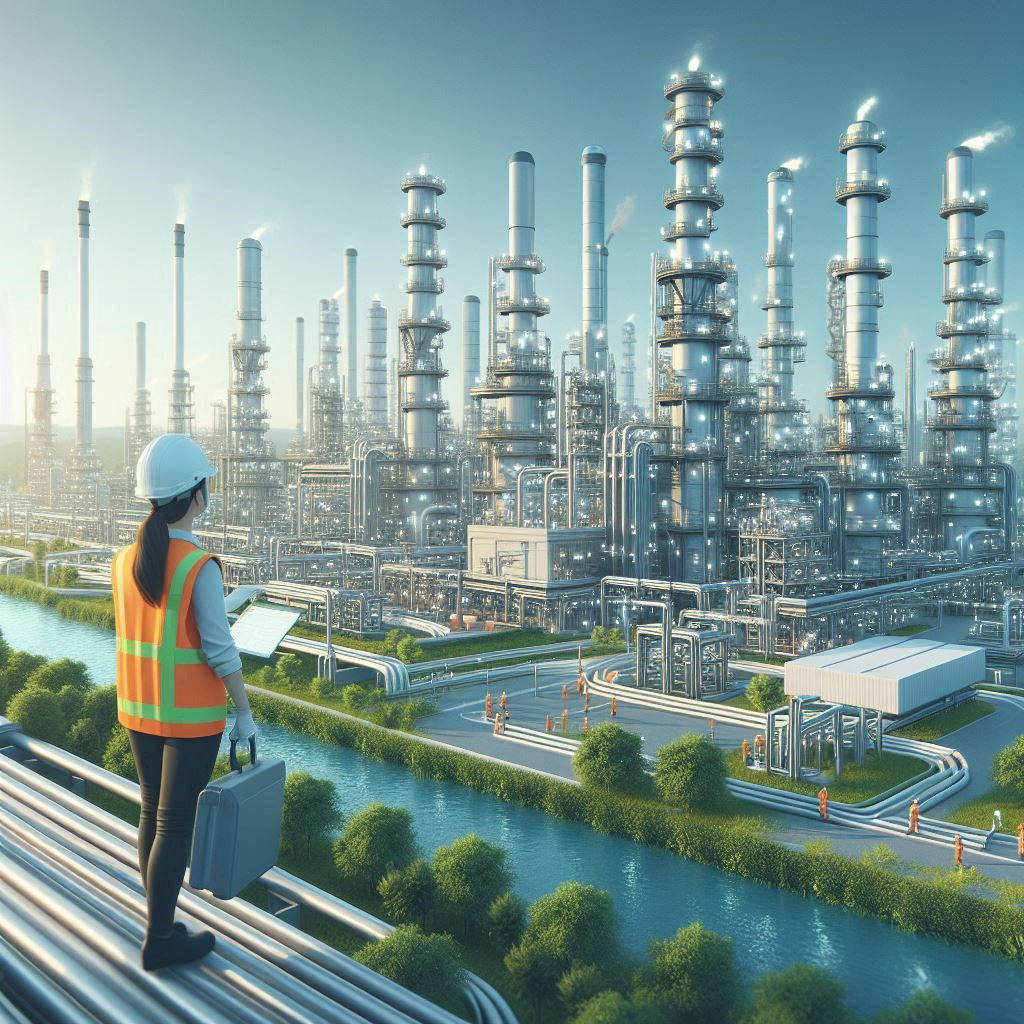As the 21st century progresses, the term New World Order is becoming more significant than ever. With shifting global power dynamics, economic re-alignments, and geopolitical conflicts, the world is rapidly moving towards a new global structure that challenges the long-established dominance of Western powers, particularly the U.S.-led world order. One of the recent catalysts in accelerating this transformation has been the escalating conflict between Israel and Gaza. This conflict has exposed deep-rooted divides in global politics, with emerging alliances challenging the existing power structures. In this comprehensive overview, we will explore how these shifts are reshaping the international order and what it means for the future.

What is the New World Order?
The New World Order (NWO) refers to a political and economic shift where global power moves from a unipolar (Western-dominated) world to a multipolar one. Historically, after the fall of the Berlin Wall and the collapse of the Soviet Union in 1991, the United States emerged as the dominant global superpower, with its liberal democratic and capitalist ideals spreading across the globe. This post-Cold War period was marked by the idea of a U.S.-led unipolar world. However, in recent years, rising powers like China, Russia, India, and coalitions such as BRICS (Brazil, Russia, India, China, and South Africa) have started to challenge this dominance.
How Geopolitical Conflicts Fuel the Shift
One of the primary reasons for this shift is the ongoing geopolitical conflicts that are not just regional in nature but have global implications. Among them, the Gaza-Israel conflict has intensified the divisions between Western and non-Western powers.
The Gaza-Israel Conflict: A Catalyst for Change
The ongoing Gaza-Israel conflict, which erupted again in 2023, has not only devastated the region but also sparked significant diplomatic and political shifts across the globe. While the conflict between Israel and Palestine has been a long-standing issue, its recent escalation has played a role in accelerating the broader New World Order by:
- Exposing Global Divides: The conflict has exposed how global powers align on issues of human rights, sovereignty, and territorial disputes. While the United States, European Union, and their allies stand firmly behind Israel, many nations in the Global South—including countries in the Middle East, Asia, and Africa—are siding with Palestine or calling for a more balanced approach. This division has fractured international diplomacy and emboldened countries seeking to challenge the current global order.
- Highlighting Shifts in Energy Politics: The conflict’s impact on energy politics has also accelerated the transition to a multipolar world. Israel and Palestine’s geographic proximity to oil-rich nations like Saudi Arabia and Iran means that any regional instability has a direct effect on global oil prices. This has forced many countries to rethink their foreign policies, with Russia, China, and other BRICS nations increasing their cooperation with Middle Eastern nations to ensure energy security.
The Role of BRICS in the New World Order
While the Gaza-Israel conflict has revealed global divisions, the rising influence of BRICS is a key indicator of the New World Order. BRICS nations have emerged as a bloc that seeks to offer an alternative to the Western-dominated global order.

Table: Comparison Between BRICS and G7 Economies
| Indicator | BRICS (Brazil, Russia, India, China, South Africa) | G7 (U.S., Canada, Japan, Germany, U.K., France, Italy) |
| Global Population | ~3.2 billion | ~770 million |
| Global GDP Share | ~30% | ~46% |
| Geopolitical Stance | Multipolar World | Unipolar World (U.S.-led) |
| Economic Growth | Fast-growing | Mature Economies |
| Key Focus | Development, Multilateralism | Democracy, Free Trade |
BRICS’ growing influence represents a counterbalance to traditional Western powers like the G7, and their role in shaping global trade, finance, and politics is accelerating as global conflicts—like the Gaza-Israel war—highlight the failures of Western diplomacy to resolve deep-rooted issues.
Expansion of BRICS
The expansion of BRICS to include countries like Iran, Saudi Arabia, Egypt, UAE, and Argentina—nations with considerable strategic influence—shows the increasing importance of this bloc in international politics. BRICS now represents nearly half the world’s population and around 30% of the global economy, signaling a shift from Western-centric global governance. The Gaza-Israel conflict has intensified support for BRICS as many Global South countries seek to distance themselves from the U.S.’s foreign policy.

Multipolarity vs. Unipolarity: The Global Realignment
The emerging multipolarity reflects a world where power is distributed among various regional players rather than being concentrated in the hands of one or two superpowers.
- Unipolarity: After the Cold War, the U.S. was the dominant player, shaping global politics, trade, and security. Western alliances like NATO upheld this order.
- Multipolarity: The New World Order is being shaped by the resurgence of regional powers like China, Russia, and India, which, along with other BRICS nations, are pushing for a world where no single country has absolute power.
Table: Characteristics of Unipolar and Multipolar Worlds
| Feature | Unipolar World (Post-Cold War) | Multipolar World (Emerging NWO) |
| Global Power Structure | U.S. Dominance | Multiple Power Centers (BRICS, EU, etc.) |
| Economic Control | U.S. Dollar Hegemony | Rise of Alternative Currencies (BRICS + Yuan) |
| Geopolitical Conflicts | U.S.-led Interventions | Regional Conflicts (Israel-Gaza, Ukraine) |
| Global Influence | NATO, G7, IMF, World Bank | BRICS, SCO, ASEAN |
The Gaza-Israel conflict has further driven this polarization, as Western countries, particularly the U.S., continue to dominate NATO and other global alliances, while BRICS countries push for diplomatic solutions outside of Western paradigms. Russia, a prominent BRICS member, has used the Gaza crisis to highlight Western failures in diplomacy and the need for a more inclusive international order that reflects the interests of all nations, particularly the Global South.
The Role of Energy Politics in Accelerating the New World Order
One of the most crucial elements in shaping the New World Order is energy politics. The Middle East remains the epicenter of the world’s oil and gas reserves, and conflicts in this region often have far-reaching global consequences.

- Impact of the Gaza-Israel Conflict on Oil Prices: With key oil producers like Saudi Arabia and Iran getting more involved in global politics, oil prices have become increasingly volatile. The ongoing Israel-Palestine conflict has heightened fears of disruption in oil supplies, especially with Iran’s backing of Palestinian groups. This situation has accelerated the global shift toward alternative energy partnerships, with BRICS nations increasing their investments in renewable energy, nuclear energy, and other sustainable alternatives.
Diplomatic Alignments: The Gaza-Israel Conflict’s Role in Reshaping Alliances
The Gaza-Israel conflict has also led to realignments in global diplomacy. While the U.S. and Europe remain staunch supporters of Israel, many countries from the Global South, including India, China, and Russia, have taken a more neutral or pro-Palestinian stance. These alignments reflect the emerging multipolar world, where countries are no longer bound by traditional alliances but are free to form new partnerships based on mutual interests.
New Alliances and Shifts in Power
- Russia and Iran: Russia’s growing partnership with Iran, a strong backer of Palestinian groups, has shifted the balance of power in the Middle East. Both nations, already part of BRICS, have used the Gaza conflict to further their geopolitical aims.
- China’s Role: China’s increasing involvement in Middle Eastern politics, especially through its Belt and Road Initiative (BRI), has positioned it as a key player in shaping the New World Order. China’s neutrality in the Gaza-Israel conflict allows it to act as a mediator, further enhancing its global stature.
Conclusion: The New World Order is Here
The New World Order is not a futuristic concept—it is happening now, shaped by conflicts like the Gaza-Israel war and the rise of BRICS nations. The world is transitioning from a U.S.-dominated, unipolar system to a multipolar one where various regional powers assert their influence. As global alliances realign and new power structures emerge, the future will be defined by how effectively nations can adapt to this rapidly changing landscape.
This transition will impact every aspect of life—from energy politics and trade to military alliances and diplomatic relations. To navigate this new global order, countries and businesses alike must remain agile, open to cooperation with emerging powers, and cognizant of the evolving geopolitical landscape.




